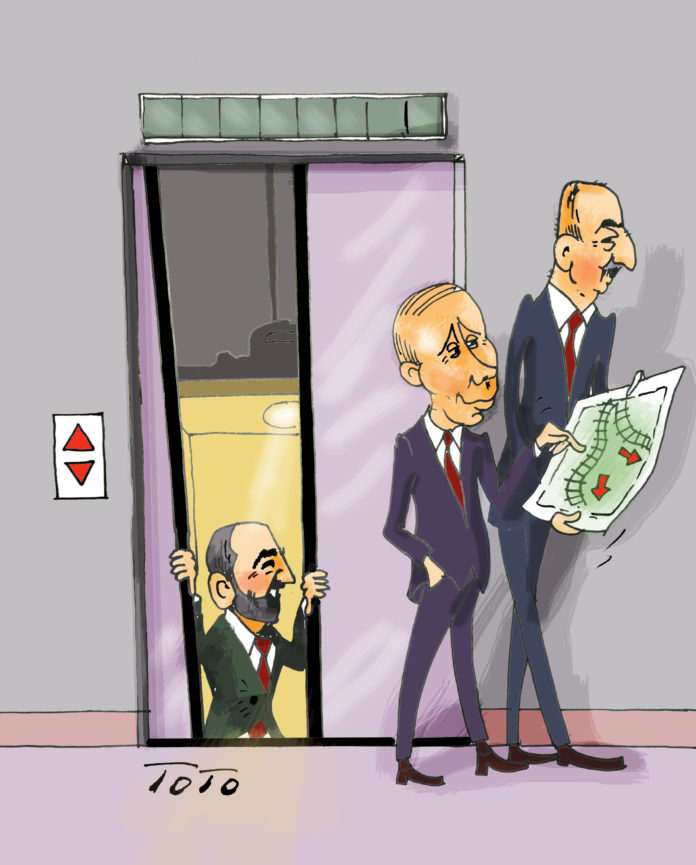There is a tug-of-war between Moscow and Ankara, and Armenia is caught in-between the two.
The 44-day war was necessary for Russia to return its military force back in Azerbaijan. It was also necessary for Turkey to deliver a victory to Azerbaijan, in return, to buy its sovereignty.
For a long time, Turkey had been looking for just such an opportunity. President Recep Tayyip Erdogan is more elated with the victory than President Ilham Aliyev because a historic Turkish dream is coming true. That is why Mr. Erdogan evoked Enver Pasha, who had tried to build a Turanic empire a century ago, during the victory parade. Now, one impediment on that road map has been removed with the declaration signed by Prime Minister Nikol Pashinyan, President Vladimir Putin and Aliyev on November 9, 2020, the centerpiece of which was the building of a road between mainland Azerbaijan and Nakhichevan through the southern tip of Armenia.
The declaration has not yet been fully interpreted. The Turkish and Azerbaijani sides claim the roadway should operate under extra-territorial rights, supervised by Russian peacekeeping forces, while Armenia insists on its normal use when all transportation routes are unblocked for all parties.
Turkey controls Azerbaijan militarily and politically, which in the long term will turn into economic control. Ankara has been quick to extend Azerbaijani oil and gas lines to the Balkan countries and the rest of Europe, gradually weaning those countries from dependency on Russian energy.
Therefore, Moscow, in addition to its military adventure in Azerbaijan, has been trying to entice the latter to join the Eurasian Economic Union (EEU) bloc. Technically, Armenia can veto Azerbaijan’s membership to that economic club, but under the current circumstances, when Armenia has become the underdog, Russia will not give a hoot for Yerevan’s opinion.










